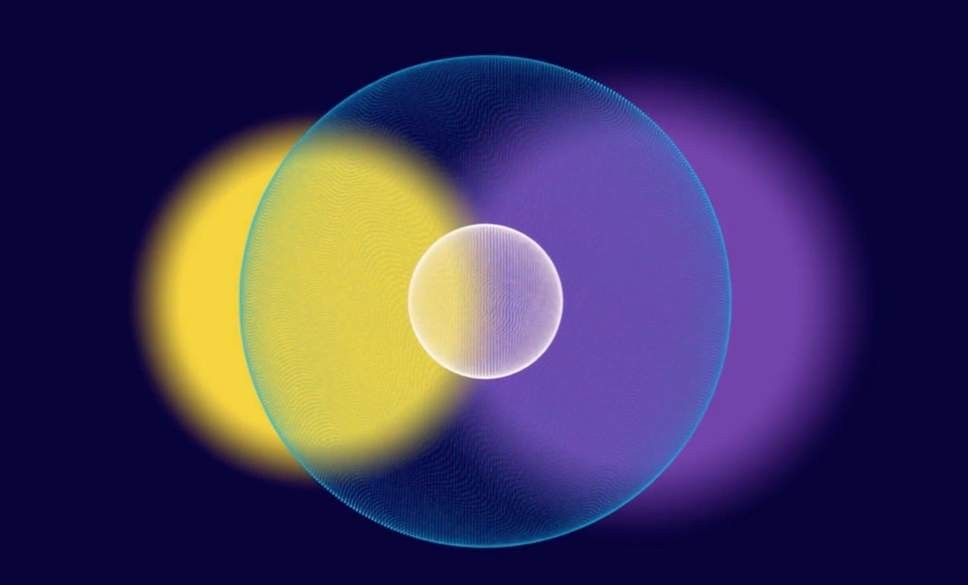
Brick lane is the kind of place Londoners visit for Friday-night hedonism. As I push open a door off the main drag, I’m seeking a different escape. Informed by research into psychedelic-assisted therapy that is drug-free, new space Wavepaths is promising a healing sound journey.
The story begins with neuroscientist Dr Mendel Kaelen. Until recently he was at Imperial College, where he researched the role of music in psychedelic therapy — in particular during a clinical trial involving psilocybin (magic mushroom) in cases of major depression. With Brian Eno — whose ambient music calmed David Bowie, and whose sound and light installations are in hospitals — Kaelen founded Wavepaths, to share the healing power of music.
“There’s scientific evidence that music can be as powerful in reducing depression, stress and anxiety as psychotherapy,” he says. “For thousands of years mankind has used music. Often it’s been the preserve of the medicine man or shaman, with a transformative, al-most magical function. Today, neuroscience enables us to see how music activates every part of the brain you can imagine: language, emotions, memory.” The Wavepaths space is designed, he adds, as a secular temple, a place for solace facilitating calm.
My journey begins with an email asking me to set an intention. It arrives as I hurtle from a podcast recording to a set of deadlines. I choose “serenity”.
I’m the first member of the public to experience a journey. My guide, Alan, invites me to leave shoes, belongings and phone in the foyer. The sense of ritual is strong. The first room is the Light Space: white walls and floor cushions are constantly transformed by a light installation by Eno that hangs from the ceiling. Alan asks if I want to share my intention. “Try not to listen to the music as if it were a concert,” he tells me. “Think of experiencing it.”
The Sound Space is lit by the slightest glow. I recline on a padded egg chair. “Sensors measure movement to gauge your breathing, and hence your emotional state,” Alan says. Scratching your nose might throw them off. The data is translated by AI into the musical system, which evolves the sound according to your mood. It’s a very mellow way to listen to electronic music, in this case by Mercury nominee Jon Hopkins.
I drift up and into the sound. It isn’t a million miles from how, if you listen to Mozart’s Requiem with eyes shut, you may feel yourself rise up with the notes. At the same time it is utterly different. As I breathe deeper I can sense a subtle, responsive deepening in the timbre of the composition. Music rolls through me. There are 21 speakers, to the sides, above and below. I don’t want it to end.
For now, the sound journeys are 20 to 30 minutes. I float on the chair, entirely relaxed. Hours of meditation app Headspace failed to get me to this point. “Just reducing the stress response allows your body to start to heal itself,” Alan says. “A constant level of stress can lead to burnout.” Kaelen has employed a team of neuroscientists who will in time use fMRI (functional magnetic resonance imaging) scanners to measure changes in the brain during the journeys and hence improve their effectiveness.
He says: “With Wavepaths the music is tailored to you: I want to emphasise it is not an evil-robot kind of artificial intelligence, more a technology with which you can collaborate.” In time, Wavepaths can build your profile to understand what you respond to: “The music adapts to you.” For now you can visit the space in Brick Lane or have a taste via wavepaths.com, when it launches, but Kaelen has big ideas. “We have a global vision. In the future we plan large, communal spaces. We live in a time when we’re disconnected from each other, and from ourselves. Music and light art has the potential to be that healing glue that brings the disconnected parts of ourselves together, and also to promote human relationships.”
He points out the word “psychedelic” is derived from the Greek “psyche” — the soul, and “delos” — to make visible. “We believe music reveals the soul. It bypasses the intellect and gives a voice to those parts of ourselves that are hard to put into words.” A day afterwards, I still feel calmer, fresher, brighter — and I will be going back.
One session £40. There are discounts for block bookings.Wavepaths.net
Original article published in Evening Standard , in May, 2019

